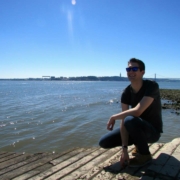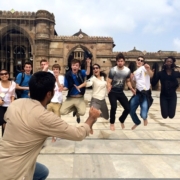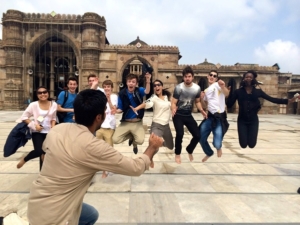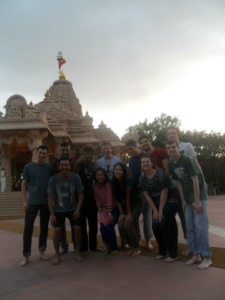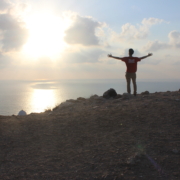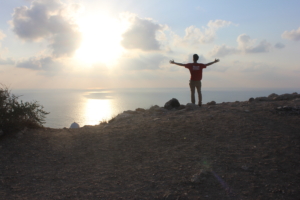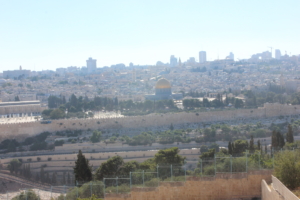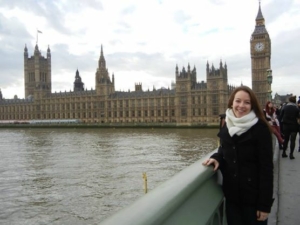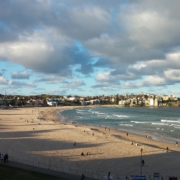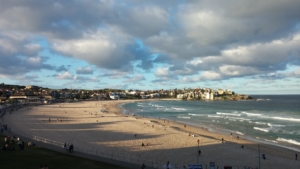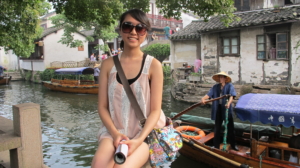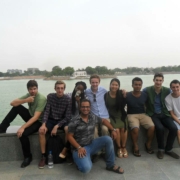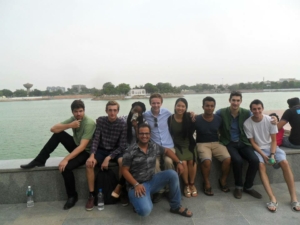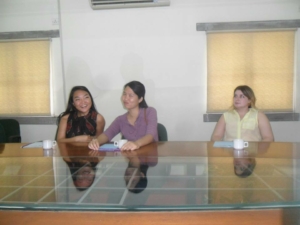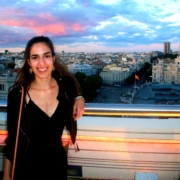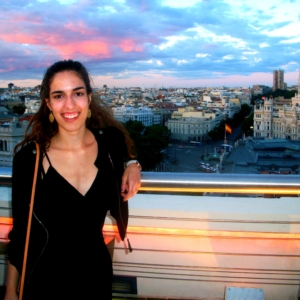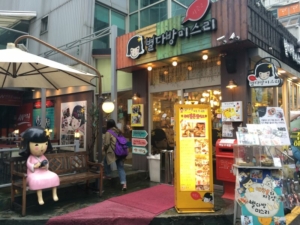Travis Pozzetta, Madrid Internship
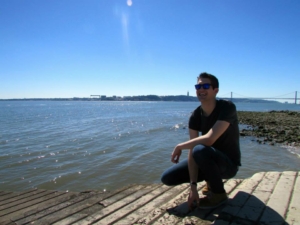 Internship: I studied abroad in Madrid at La Universidad Autónoma de Madrid during Spring 2014. I interned with Management Solutions, an international business consulting firm. I worked in the central Management Solutions office with I+D, the Research and Development department. The primary responsibilities of I+D are to research and report on the macroeconomic, financial, and regulatory conditions of regions in which its clients operate. I was responsible for major contributions to several ongoing projects. I spent most of my internship working from a company laptop, compiling information and creating Spanish-language reports and PowerPoint presentations. My research mostly supported the work of the rest of team, and I was assigned to several different topics, from summarizing and translating the Model Risk Management regulations included in IFRS 9, to reporting on the broad financial panoramas of the US and UK. Additionally, I helped with the final versions of many of the English reports produced by I+D, as I was the only native speaker in the department.
Internship: I studied abroad in Madrid at La Universidad Autónoma de Madrid during Spring 2014. I interned with Management Solutions, an international business consulting firm. I worked in the central Management Solutions office with I+D, the Research and Development department. The primary responsibilities of I+D are to research and report on the macroeconomic, financial, and regulatory conditions of regions in which its clients operate. I was responsible for major contributions to several ongoing projects. I spent most of my internship working from a company laptop, compiling information and creating Spanish-language reports and PowerPoint presentations. My research mostly supported the work of the rest of team, and I was assigned to several different topics, from summarizing and translating the Model Risk Management regulations included in IFRS 9, to reporting on the broad financial panoramas of the US and UK. Additionally, I helped with the final versions of many of the English reports produced by I+D, as I was the only native speaker in the department.
I learned: One thing that I learned was the importance of communication and collaboration in an office environment, something that was difficult for me at first due to the language barrier. Fortunately, the team was very supportive and made accommodations for me at first, knowing that I was coming to Madrid as a person who had limited experience with working in a second language. Eventually, as I improved, they raised their expectations and gave me projects that were more complex and required a greater Spanish speaking aptitude.
Another thing I learned a lot about was perspective. Since I’ve only ever taken classes in the US, I had a very “US-centric” education up until my semester abroad. Between the business classes and my conversations with Spanish students, I learned a lot about Spanish culture and worldviews and how different one’s perception can be, based upon personal experience and values. I feel that this trip helped me learn to relate more with values and perspectives that are very distinct from my own.
I was surprised by: The thing that surprised me the most was how easy it was to adjust to an environment that was completely foreign to me. Before the program started I was fairly nervous, especially because I wasn’t sure that my Spanish would be good enough. Even so, within the first week of our arrival I felt much more comfortable, especially knowing that the BU Madrid staff was there to help with anything I needed. Before I knew it, I was going through my days with no problems at all. It truly felt like I was a part of the community rather than a foreigner.
The hardest part: The hardest part of my experience was getting used to the Spanish upper education system. I knew that it would be a challenge taking classes at the Autónoma with native speakers, but the main issue for me was the lack of structure throughout the semester. Classes were twice a week and totally lecture-based, as the program details explained, but this was difficult for me because I’m accustomed to a different learning style. The only other grades besides exams were projects and attendance. Other people will certainly excel in this system, but the combination of exclusively lecture-based classes and the Spanish-language environment was a challenge. Regardless, the teachers were accommodating for international students and I was very happy with my progress by the end of the semester.
The best part: A very difficult question, but the best part for me was the ability to travel. I was fortunate enough to take a few weekend trips in Spain and around Europe, and it was life changing. The countries are close enough, but with the cultural differences it almost felt like I was visiting different worlds. I think travelling gave me a greater appreciation for Madrid, and I loved feeling like I was coming home at the end of the trips.
My tips: I advise you to make the most of this incredible location! Madrid is an absolutely amazing city, and there are so many opportunities throughout the semester to explore it further. Be sure to visit the many beautiful museums, try the local cuisine, and make Spanish friends! You will be very busy during the semester, so plan ahead and make the most of your limited time. Spain is a large and diverse country, so you should be sure to see other cities as well.
